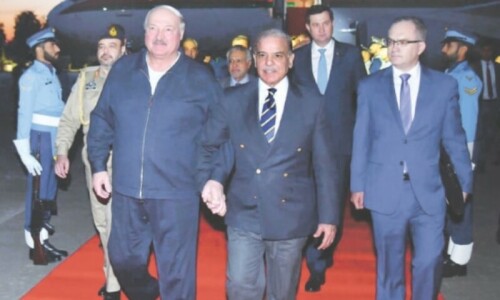NEW DELHI, Oct 15: Leaders from emerging economic powers – India, South Africa and Brazil – on Wednesday slammed rich nations over what they said is a self-made financial crisis.
Brazilian President Luiz Inacio Lula da Silva said many developing countries had become “victims of the global financial crisis generated by the rich countries.”
He said it was unfair that poorer nations had “to pay for the irresponsibility of speculators who have transformed the world into a gigantic casino.”
Indian Prime Minister Manmohan Singh is hosting Lula and South African President Kgalema Motlanthe for the third annual India-Brazil-South Africa (IBSA) conference.
Motlanthe was equally damning, saying the “ill-conceived decisions of a few have brought the international financial system to the brink of collapse.”
He said both developed and developing nations needed to address “what really went wrong” and caused “an unmitigated disaster.”
“As the developing world, we must accept that one-size-fits-all solutions prescribed to us by the developed world must be approached with a great deal of caution,” Motlanthe said.
Addressing a press conference at the end of the day-long summit, Singh said IBSA countries had instructed their finance ministers and central bank governors to “establish a coordinating mechanism” on the global financial crisis.
Lula warned that the crisis could affect the economies of developing countries “if there is a recession in the European Union and the US” because “they are the buyers and we are the sellers.”
A summit declaration said it had taken serious note of the “unprecedented turbulence in the global financial markets... that threatens global prosperity.”
“The explosion of new financial instruments unaccompanied by credible systemic regulation has resulted in a major crisis of confidence for which those responsible should be held accountable,” it said.
Demanding a new international initiative to solve the problem, the declaration said it must take into account “the fact that ethics must also apply to the economy.”
Reforms must include “stronger systems of multinational consultations and surveillance.”
The three countries, which have a combined population of 1.3 billion, believe they can best achieve results on issues such as world trade talks and push through UN Security Council reforms by working together.—AFP











































Dear visitor, the comments section is undergoing an overhaul and will return soon.